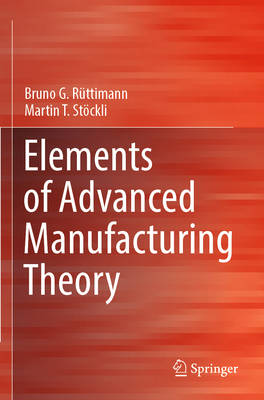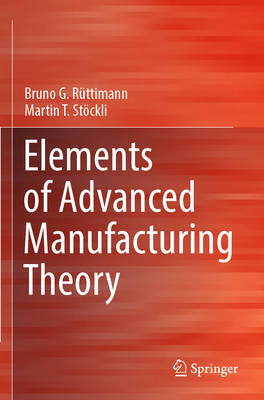
- Afhalen na 1 uur in een winkel met voorraad
- Gratis thuislevering in België vanaf € 30
- Ruim aanbod met 7 miljoen producten
- Afhalen na 1 uur in een winkel met voorraad
- Gratis thuislevering in België vanaf € 30
- Ruim aanbod met 7 miljoen producten
Zoeken
€ 105,45
+ 210 punten
Uitvoering
Omschrijving
This book is the continuation of the textbook Lean Compendium - Introduction to Modern Manufacturing Theory. It extends the theory of mathematical modeling to batch & queue-based cyber-physical production systems. To facilitate learning, the book continues to develop a Cartesian-derived understanding of the system's behavior by applying manufacturing-specific theorems, corollaries and lemmas. A law-based description enables to model production mathematically and understand upfront their dynamics in terms of WIP generation, lead-times, exit-rates, and on-time delivery performance. While simulation alone only allows to explore the optimum solution, the development of a theory allows to gain knowledge. This improves the learning of the "physics" of manufacturing systems and contributes to a solid production's understanding and a clear and cognitive problem determination that leads to a thorough mental capture for mastering a systematic design of such highly complex systems.
Specificaties
Betrokkenen
- Auteur(s):
- Uitgeverij:
Inhoud
- Aantal bladzijden:
- 168
- Taal:
- Engels
Eigenschappen
- Productcode (EAN):
- 9783031020490
- Verschijningsdatum:
- 19/06/2023
- Uitvoering:
- Paperback
- Formaat:
- Trade paperback (VS)
- Afmetingen:
- 156 mm x 234 mm
- Gewicht:
- 267 g

Alleen bij Standaard Boekhandel
+ 210 punten op je klantenkaart van Standaard Boekhandel
Beoordelingen
We publiceren alleen reviews die voldoen aan de voorwaarden voor reviews. Bekijk onze voorwaarden voor reviews.











